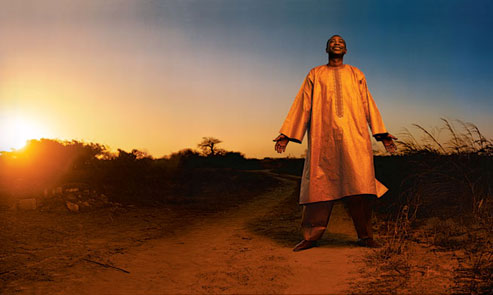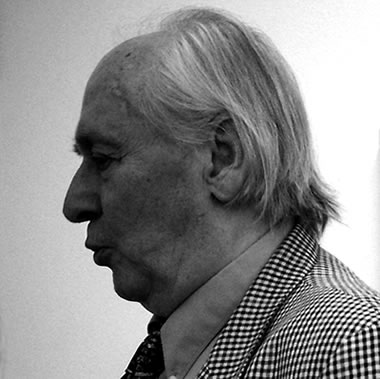Youssou N'Dour: I Bring What I Love
 The best known African singer in the world, the most significant cultural figure in Senegal, the voice that 'Rolling Stone' described as perhaps containing the whole of the continent (though I'm not sure whether that's a kind of silly post-colonial statement or a magnificent expression of what it can do), father, son, brother, political activist, mystic, and frankly one of the most obviously attractive human beings I've ever seen, Youssou N'Dour is the subject of a new documentary by Elizabeth Chai Vasarhelyi, 'I Bring What I Love', which I saw last night at the Nashville Film Festival.
The best known African singer in the world, the most significant cultural figure in Senegal, the voice that 'Rolling Stone' described as perhaps containing the whole of the continent (though I'm not sure whether that's a kind of silly post-colonial statement or a magnificent expression of what it can do), father, son, brother, political activist, mystic, and frankly one of the most obviously attractive human beings I've ever seen, Youssou N'Dour is the subject of a new documentary by Elizabeth Chai Vasarhelyi, 'I Bring What I Love', which I saw last night at the Nashville Film Festival.
And what a film it is. We follow N'Dour's tour of 'Egypt', an album of Sufi devotional music whose sound envelopes the audience in a transcendent challenge to the populist 'understanding' of Islam post-9/11; Youssou's experience of his own religion is one in which generosity to the stranger, peace among neighbours, and celebration at the drop of a hat are the common marks. Even when these are not the means by which the faith is manifested - we all fail to live up to our best traditions - Youssou N'Dour appears so committed to its outworking that he even has a problem with the violence necessary to slaughter a lamb at a sacred feast. This may be the most telling moment in the film, for it includes the moment in voiceover when he admits that even pushing 50, every time he is in the presence of his father, he feels like he's '15 years old'. It's at that point that so many of us will identify with him - and maybe hope that we are all doing better at life than we give ourselves credit for.
'I Bring What I Love' is not the most clearly structured film; I felt it was about a quarter of an hour too long, and the story became repetitive after a while - but these are tiny concerns far outweighed by the sheer human vitality on display in the form of this man, an heir of the 'griot' tradition who suffered insults from his own country for trying to fuse religion and popular culture; a global superstar willing to let a camera crew observe him relating to his frail grandmother without it seeming exploitative or publicity-hugging; a person who appears to be living from his best self, or at least his most self - he's not letting pain or difficulty get in the way of figuring out what it means to be a fully human being.
And the scene when a Dublin audience is gently admonished to drink up because Senegalese Sufi musicians don't want to play devotional music while alcohol is being consumed (and the audience politely agrees, even applauding the invitation) seems to me to be a sign of hope that marks the best consequences of globalisation. Youssou N'Dour's music invites us to consider the religious cliche that we are all one. So far, so what? Well, what can I say to that? If you don't listen to the music, you won't know why I'm so excited about this film, and the life-altering potential presented in essence in its title.
 My friend Dave Dark's wonderful new book 'The Sacredness of Questioning Everything' hasn't yet been given to President Obama by Hugo Chavez, at least as far as I know, but I'm sure that's only because the Spanish translation hasn't been published yet...You can, however,
My friend Dave Dark's wonderful new book 'The Sacredness of Questioning Everything' hasn't yet been given to President Obama by Hugo Chavez, at least as far as I know, but I'm sure that's only because the Spanish translation hasn't been published yet...You can, however,  JG Ballard died at the weekend. If you only know him for 'Empire of the Sun', I recommend a deeper journey into his work; if you only know him for 'Crash' - a disturbing imagining of what happens to humans when they confuse (and fuse) their spiritual longing with material things, and which, when filmed by David Cronenberg gained him a kind of notoriety which I imagine was amusing, I recommend 'Empire of the Sun'. 'Empire' is one of the darkest and most troubling stories of war and childhood. Ballard was a serious writer who cared more than most about how technology is changing what it means to be human. If he never seemed to be the cheeriest of thinkers, it's because he felt life had been so trivialised by our particular forms of media that it deserved sustained attention from a position of gravity.
JG Ballard died at the weekend. If you only know him for 'Empire of the Sun', I recommend a deeper journey into his work; if you only know him for 'Crash' - a disturbing imagining of what happens to humans when they confuse (and fuse) their spiritual longing with material things, and which, when filmed by David Cronenberg gained him a kind of notoriety which I imagine was amusing, I recommend 'Empire of the Sun'. 'Empire' is one of the darkest and most troubling stories of war and childhood. Ballard was a serious writer who cared more than most about how technology is changing what it means to be human. If he never seemed to be the cheeriest of thinkers, it's because he felt life had been so trivialised by our particular forms of media that it deserved sustained attention from a position of gravity.  I may just have seen the film of the year. A contemporary satire that deserves comparison with Jonathan Swift and Mark Twain, which starts hilarious, gets funnier, and more real, and even more uncomfortable until the laughs are intellectual but become inaudible, because the truth of what is happening on screen can only evoke anger. 'In the Loop', Armando Ianucci's expansion of his TV show 'The Thick of It' is the first plausible, and the best English language film about the events surrounding the Iraq war.
I may just have seen the film of the year. A contemporary satire that deserves comparison with Jonathan Swift and Mark Twain, which starts hilarious, gets funnier, and more real, and even more uncomfortable until the laughs are intellectual but become inaudible, because the truth of what is happening on screen can only evoke anger. 'In the Loop', Armando Ianucci's expansion of his TV show 'The Thick of It' is the first plausible, and the best English language film about the events surrounding the Iraq war.